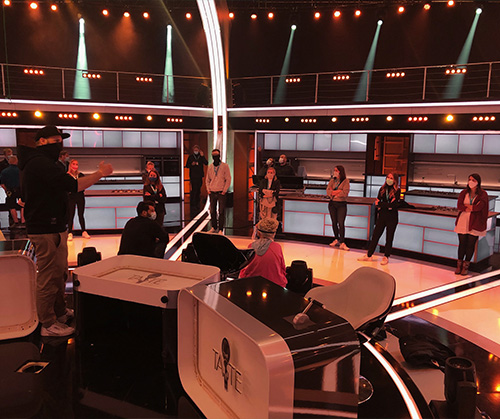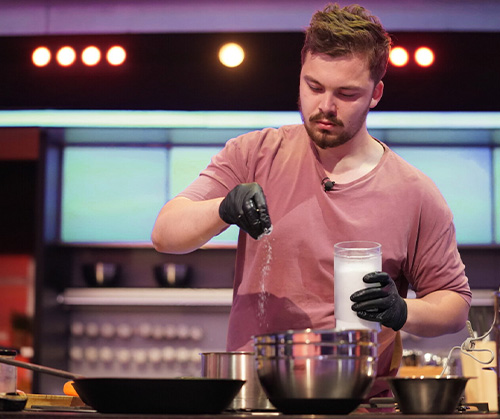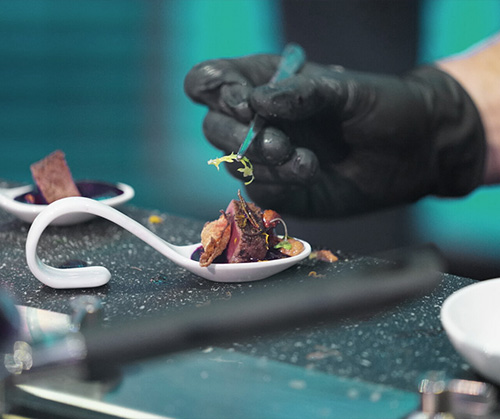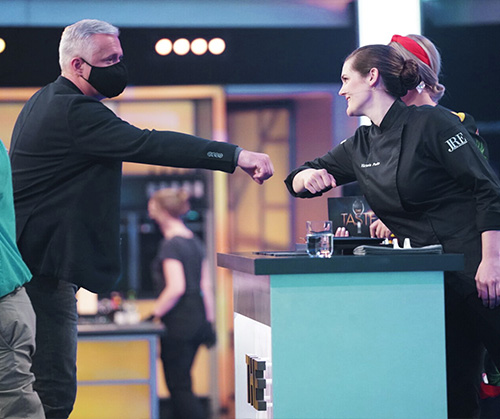ProSieben Special: Right-Wing. German. Radical.
From Washington D.C. to Berlin – the world is abuzz over this documentary report.
French daily Le Monde covered the dismissal of a right-wing AfD party official in a story also featured in the Washington Post, which reported, “Lueth told a young blogger in February that the worse off Germany is, the better it would be for his party, and that migrants coming to the country‚ could still be shot later on (...) or gassed. The meeting was secretly filmed by broadcaster ProSieben for a documentary to be aired Monday about Germany’s far right.” At home, German daily the Frankfurter Allgemeine stated that “ProSieben journalist Thilo Mischke has scored a real coup with his documentary ‘Rechts. Deutsch. Radikal.’ (Right-Wing. German. Radical.).”
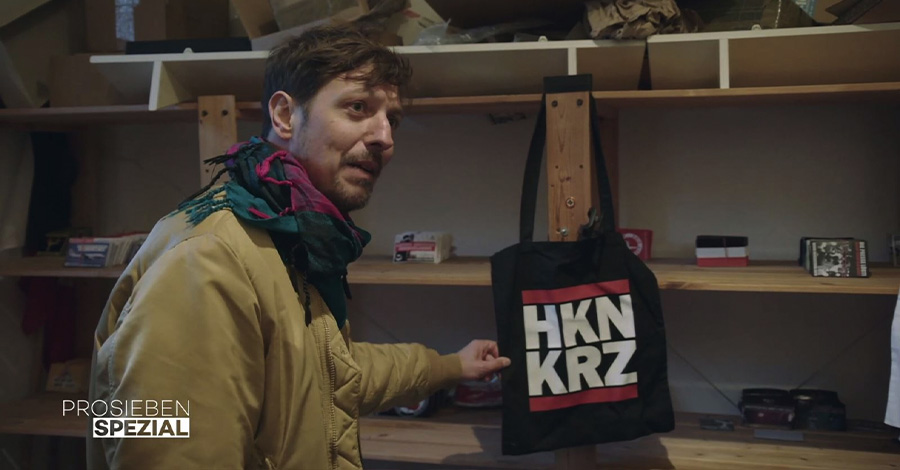
What happened? TV station ProSieben shocked the German public and political Berlin with the report entitled ‘Rechts. Deutsch. Radikal.’ (Right-Wing. German. Radical.). Journalist Thilo Mischke spent over 18 months investigating the right-wing scene in Germany. He filmed young neo-Nazis at festivals and demonstrations, met with far-right organizers of sports events and he spoke with constitutional protectors as well as political experts. And by planting a hidden camera, he recorded a top functionary from Germany’s right-wing, nationalist AfD party saying things like, “We have to make that Germany is doing badly.” The high-ranking AfD official was hoping to win over an influencer to help him and the party in an election campaign.
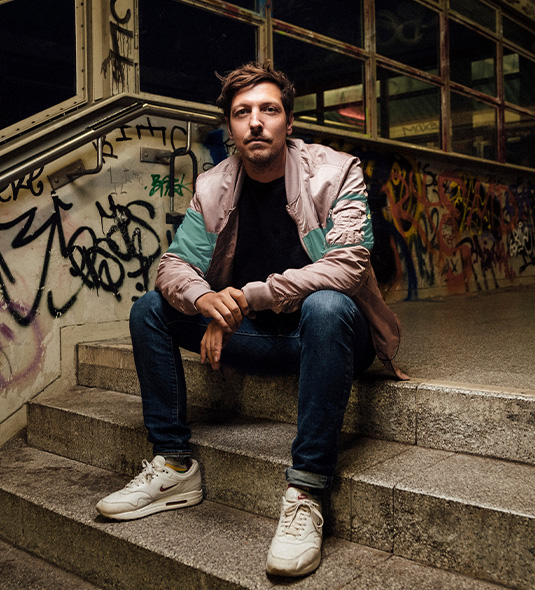
When conducting an investigation of this kind, you’re not trying to convert your conversation partner to your way of thinking. I met with many of the protagonists in the documentary several times and was always an attentive listener.
Journalist
How does a documentary like this come into being? “By listening. And then listening some more,” says journalist Thilo Mischke. “When conducting an investigation of this kind, you’re not trying to convert your conversation partner to your way of thinking. I met with many of the protagonists in the documentary several times and was always an attentive listener. I also phrased my questions so that they were not directly accusatory.” How did he go about conducting the investigation? “My team and I got in touch with many of the leaders in the right-wing political scene. Some of them broke off contact after the first recordings. Others met with us several times.” Is it possible to put together detailed plans for a documentary like this in advance? “Not really. In fact, not at all,” says Thilo Mischke, who received the 2020 Bavarian TV award in the information category for another special ProSieben documentary ‘Deutsche an der ISIS-Front’ (Germans Fighting on the Front for ISIS).
“The end of each shoot is a crossroads: You have to decide where to go next and whose story to pick up on. It’s not possible to work to a ready-made plan, such as a script. That takes patience as a reporter. The fact that we weren’t committed to a specific broadcast date took the pressure off and turned out to be a huge advantage. All along, ProSieben Channel Manager Daniel Rosemann said, ‘We won’t air the documentary until you’re totally happy with it.’ That made our job as journalists a lot easier.” How dangerous was working on the documentary? “Let’s just say that we received a lot of advice reminding us to take extra care over our personal safety. Which is exactly what we did.”
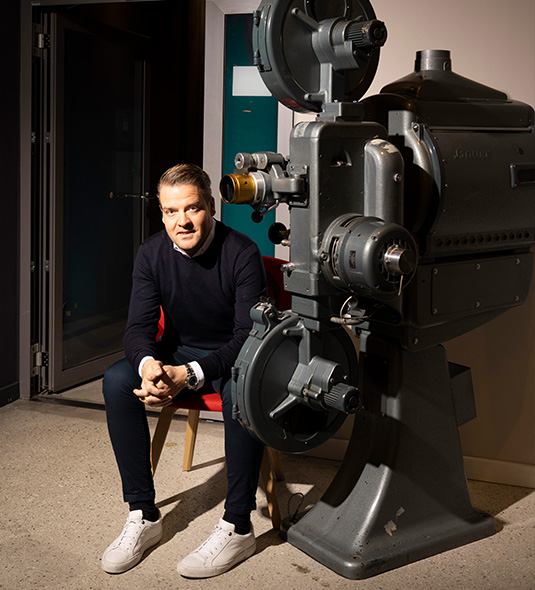
Thilo Mischke’s documentary is an exceptional piece of investigative journalism, which is emblematic of the new ProSieben – bolder, more relevant, more topical.
ProSieben Channel Manager
For his part, ProSieben Channel Manager Daniel Rosemann says, “Thilo Mischke’s documentary is an exceptional piece of investigative journalism, which is emblematic of the new ProSieben – bolder, more relevant, more topical. For the past two years, we have been increasing the proportion of in-house productions in our programming including special documentaries, such as ‘Rechts. Deutsch. Radikal.’. In 2021, we will be airing significantly more documentary reports and other factual programs on ProSieben.”
It’s worth the effort. After all, Thilo Mischke has made what is perhaps the most highly regarded political documentary report in recent years. While it was still being broadcast on ProSieben, other German TV stations, such as ZDF and ARD were already reporting on it in the news program ‘heute journal‘ (Today Journal) and political talk show ‘Hart aber fair‘ (Tough but Fair). Social media went wild. For two days, the documentary’s hashtags dominated Twitter trends. And the AfD dismissed the official in question.
Redseven Entertainment
“The expression ‘rise to the occasion’ takes on new meaning.”
A professional chef who lend his protégé a helping hand, demonstrating how to properly fillet meat or flambé a dessert to perfection. Candidates who, after a tough jury decision, seek comfort from their fellow contestants or leap into each other’s arms in moments of celebration. Even though the eighth season of the SAT.1 cooking show ‘The Taste’ had to do without these emotional moments during the pandemic, it is no less thrilling than its predecessors. Quite the contrary. Despite difficult pandemic conditions, the Redseven Entertainment team found ways to produce the program in June 2020 that chime perfectly with the show’s dramaturgy. Heidi Brückl, Henning Kruse and Tobias Gramann explain how changes that were initially driven by necessity have proved valuable to the show’s further development and possibly worth keeping in the future.
After Germany’s spring lockdown, ‘The Taste’ was Redseven’s first major, multi-week studio production to get underway in June 2020. What clinched the decision to go ahead with production?
Heidi Brückl: “Canceling was never on the cards. Preparations were already very far along before we went into lockdown. We had as good as settled on the cast – and once it was finalized, the show literally fell into place fully formed in our minds. It felt only natural to us that we should move forward – however, only under three conditions: In addition to receiving official permission from the health authorities, ensuring a safe working environment for our candidates and employees was, of course, essential. Despite the constraints and changes resulting from the pandemic, we also could not afford to lose sight of our goal to create a great show for our audience. Seeing the ‘Germany’s Next Topmodel’ season finale go ahead was very heartening for us. A few weeks before we started production, our colleagues on that show proved that it is possible to produce TV under pandemic conditions. While the result may be a different show, it’s no less watchable.”
Tobias Gramann: “In some ways, we threw ourselves in at the deep end: With four weeks in production and a crew of up to 170 people, ‘The Taste’ is a mammoth project that is complex and labor-intensive even under normal conditions. And you have to remember that, at that early stage of the pandemic, we had very little scope for action. There were virtually no specific legal guidelines and the German statutory liability insurance association for energy, textile, electricity and media (BG ETEM) only published its legally binding production recommendations shortly before we got going. Up to that point, we had taken the initiative on organizing everything. Plus, rapid testing was not available in the form we know today. And the fact that we are handling groceries and the show is all about preparing and eating food didn’t make things any easier. Somehow, we just took it one day at a time and, of course, also picked up ideas from colleagues – some of them went without an audience, others used plexiglas walls. So it was very much a case of learning by doing and asking ourselves what’s possible, what’s permitted and how do we go about it? What can we no longer do and how do we fill those gaps? And how will that strike viewers? The situation was so fluid that there was a new status quo almost every day and a constant need for discussion, as yesterday’s ideas were either scrapped or fine-tuned.”
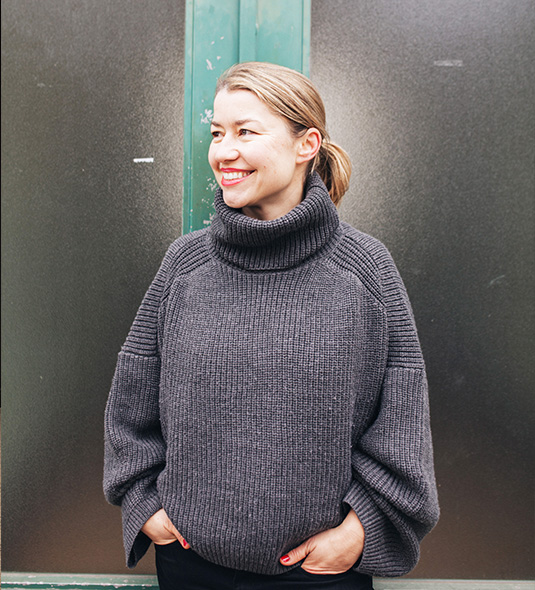
Heidi Brückl
As a producer at Redseven, Heidi leads the ‘The Taste’ production team. She has worked on the successful SAT.1 show since its first season and liaises between the editorial and production sides. In fact, ‘The Taste’ isn’t the only cooking show she spearheads: “Rosin’s Restaurants” is also part of her area of responsibility.
What COVID-19 measures did you implement and how did they impact the show?
Henning Kruse: “First of all, we decided together with our channel colleagues to postpone production for four weeks. We used the extra time to develop COVID-19 concepts for different production areas. Our measures are divided into on-stage and off-stage categories – or what is and isn’t visible to the audience. Behind the camera, the hygiene measures that are now part and parcel of everyday life applied – practicing social distancing, regularly washing and disinfecting our hands, wearing masks, measuring every person’s temperature on arrival on set each day, self-disclosure, as well as creating more space. That not only meant moving recreation rooms outdoors as far as possible, but also, without further ado, expanding the usually very cramped and crowded control room with an additional OB van.”
Heidi Brückl: “As far as the on-stage measures were concerned, we reviewed the situations where candidates and their mentors get ‘too close’ to each other and devised ways to change that. It wasn’t long before we reached the conclusion that restructuring the set design was unavoidable. So, for instance, we moved the candidates’ lounge into a larger audience foyer. There, they could watch the tasting process on screens instead of sitting in a gallery behind the jury as they had done in the past. This meant they were less reserved and responded more freely. Instead of a judges’ table, jury members sat at separate tables, which we set out in a semicircle. Thanks to the new arrangement, the mentors were able to see each other better and suddenly interacted much more intensively. Despite some initial skepticism, having the mentors remain behind their individual pulpits and coach their candidates from a distance also worked well.”
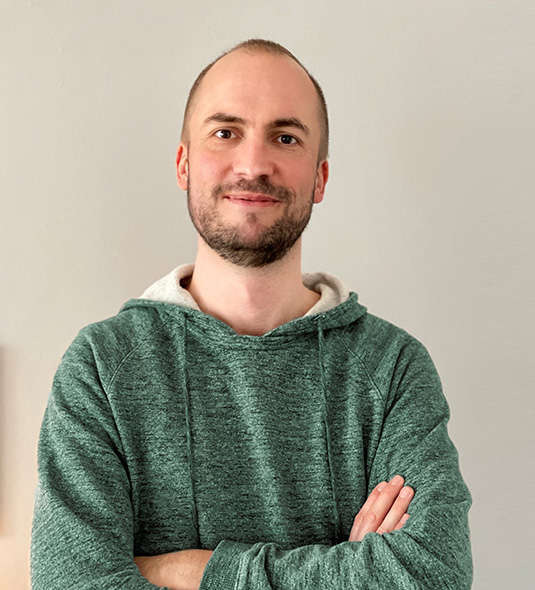
Henning Kruse
Thirteen years at Redseven, including three on ‘The Taste’, stand Henning in good stead. Because as production manager, he is responsible for organizing the entire shoot. In addition to budget planning, he also ensures the set is safe for everyone on it.
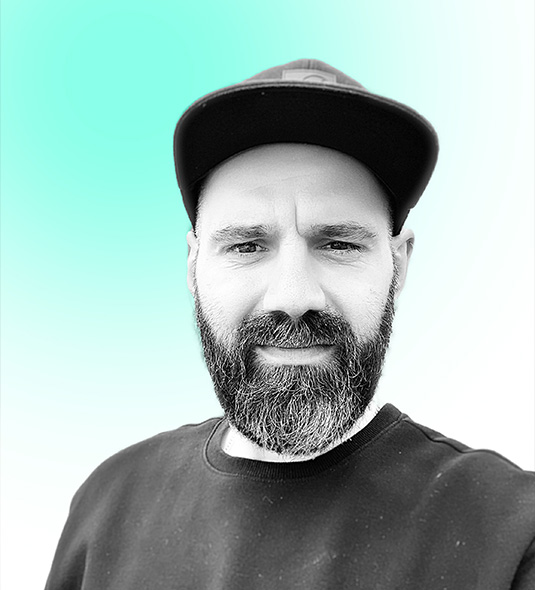
Tobias Gramann
As line production manager, Tobias oversees all overarching, production-specific aspects. As of March 2020, he is also the COVID-19 officer at Redseven and takes care of all questions on this subject.
So the challenging production conditions actually changed parts of the program for the better? And did it do the same for your team?
Heidi Brückl: “We succeeded in developing several new contest concepts that are not only ‘Corona-safe’ but also a step forward in terms of content and dramaturgy. A lot of this we felt was so good that we will stick with it in the future. COVID-19 is responsible for triggering what is sometimes a very radical reinvention process in the first place. Yet it must be said that ongoing development is the Redseven philosophy behind our long-running hits such as ‘The Taste,’ ‘Hochzeit auf den ersten Blick’ (Married At First Sight) and ‘The Biggest Loser.’ We strive to never rest on our laurels. I think it’s important not to ‘glorify’ the production too much after the fact because it was a stressful time for the entire team. For weeks on end, we worked under unrelenting pressure and it was a tough call to really connect with everyone’s faces covered by masks and face visors. In the end, we got it all done – mainly because every single person in front of and behind the camera came ready to give of their best with each new day.”
Henning Kruse: “The huge additional input and obstacles the pandemic caused during this production simply cannot be underestimated. As soon as we solved one problem, another one popped up somewhere else. After rebuilding the set, for instance, we realized we were going to need a lot more cameras. SAT.1 was always ready to lend an ear and did their utmost to make everything happen. All decisions were made based on a broad consensus because everyone knew how serious the situation was. Such close, constructive teamwork is truly invaluable. To that extent, the production process gave new meaning to the expression ‘rising to the occasion’ and our team grew stronger for it. And the results are a testimony to that: Despite challenging conditions, we pulled together to take the eighth season of ‘The Taste’ to a whole new level by delivering top-notch entertainment.”
Tobias Gramann: “The production was tough going for all of us, but we also gained an incredible amount of valuable experience. Some of the benefits we are still seeing today. Naturally, we have now refined our catalog of measures and are adapting them depending on the production and the general state of the pandemic. It goes without saying that Corona-related changes can’t always be as successfully incorporated into the narrative as on ‘The Taste.’ Our takeaway from this time is that with team spirit, creativity and above all a great deal of flexibility, we can keep TV productions going during a pandemic. And in the process, create shows that delight our viewers.”
Joko & Klaas vs. ProSieben
15 minutes of awareness
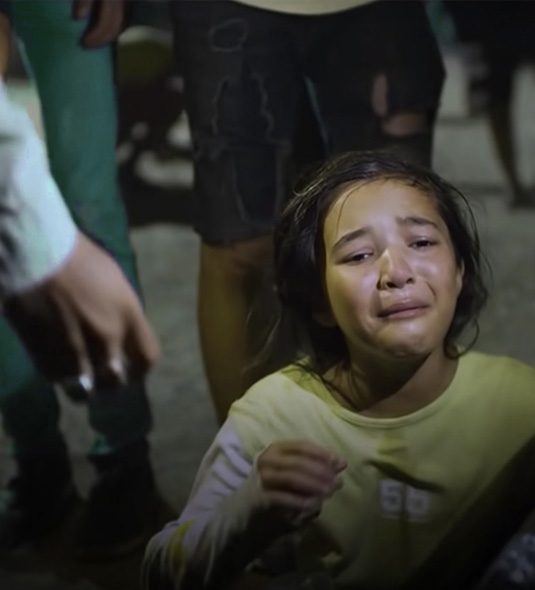
The presenters Joko Winterscheidt and Klaas Heufer-Umlauf regularly devote the prime time slots they win on their show ‘Joko & Klaas gegen ProSieben’ (Joko & Klaas vs. ProSieben) to socially relevant topics. As a media company, ProSiebenSat.1 is aware of its responsibility to sensitize its millions of viewers to such issues. And in 2020, ‘15 Minuten’ (15 Minutes) once again played a vital role in our efforts to achieve this. In their short film ‘Männerwelten’ (Men’s Worlds) for example, which was part of ‘Joko & Klaas LIVE,’ Winterscheidt and Heufer-Umlauf rose awareness to something that is still a social taboo in Germany – sexism and sexual violence against women. In the film, journalist Sophie Passmann guides viewers through an exhibition whose exhibits include sexist messages and items of clothing that women wore when raped, among others. The unvarnished honesty leaves a lasting impression: Days after the video aired, the hashtag #Männerwelten was still trending on social media. In fact, the clip ranks as Germany’s second most clicked YouTube video of 2020. When a fire almost completely devastated the Greek refugee camp Moria in September, Joko and Klaas gave the floor to 21-year-old asylum seeker Milas Ebrahimi: In ‘A Short Story of Moria’, Milas reports on the inhumane living conditions in the camp on Lesbos and describes the challenges he faced leaving Afghanistan for Europe. The images, which Heufer-Umlauf described as “on the edge of the bearable,” were seen by around 1.43 million viewers in the core target group during prime time that day. By the end of 2020, it had additionally received over 17 million views on YouTube, Facebook Watch and IGTV.
Campaigns and advertising spaces during covid-19
With each other, for each other: Making a difference, together
Germany, March 2020. The COVID-19 pandemic and the associated lockdown have brought public and social life to a virtual standstill. As part of the nationwide “Zusammen gegen Corona” (Together against Corona) initiative, the German government is calling for people to set an example of solidarity and cohesion by using the hashtag #WirBleibenZuhause (WereStayingAtHome). As a media company, ProSiebenSat.1 is also aware of its special responsibility in times of crisis. With this in mind, it developed the broad-based online and on-air “miteinander.füreinander” (With each other, for each other) campaign.
In various clips, well-known channel faces – including Jochen Schropp, Viviane Geppert and Christoph “Icke” Dommisch – call on the population to stay at home for public interest and also thank all those who continue to hold the fort for the common good: the everyday heroes in all critical occupations. It is worth noting that the company’s own employees, who ensure that broadcasting operations and news coverage continues, are among those essential workers as well. Additionally, ProSiebenSat.1 committed to assisting the Group’s advertising customers. By launching the #WirSagenDanke (SayingThanks) themed commercial breaks, the Group supported those companies that wanted to send a message of gratitude during the pandemic. For the thank-you messages, ProSiebenSat.1 provided particularly attention-grabbing advertising slots on the stations ProSieben, SAT.1 and Kabel Eins. The advertising slots immediately followed the Group’s own trailer campaign and thus provided special branding. The Group then went a step further by establishing the Creative First Aid Kit, which supported advertisers with campaign planning during the crisis. In addition to spot adaptions, the “first aid kit” consisted of new creative ideas and offers. At the turn of the year 2020/2021, ProSiebenSat.1 once again led by example with the ‘Gemeinsam das Gute sehen’ (Look at the good things together) campaign. In short clips, presenters Steven Gätjen and Rebecca Mir as well as other channel faces encouraged viewers to make the best of things during the renewed lockdown and to believe in the good together. Because especially in times like these, cohesion is more important than ever, true to the motto ‘Together we are strong’.

